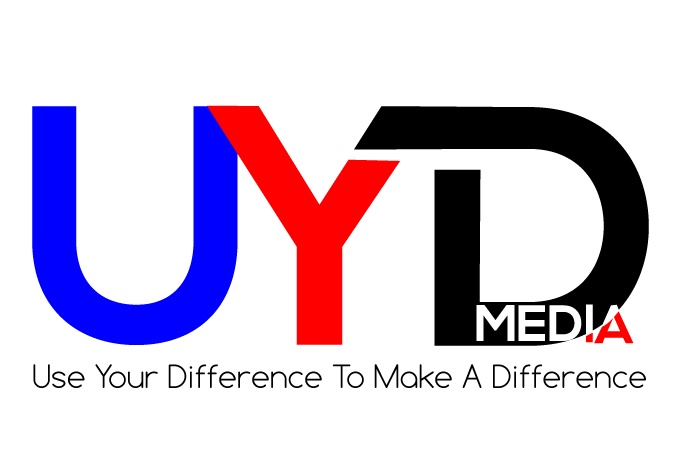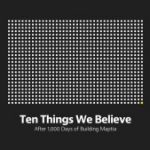By Alexander Vera
As I walk in the door, I wave a friendly hello to the receptionist as I tap my wallet against the hidden sensor. Without breaking my stride, I hear the beep confirming that I was given access, and I head straight towards one of the eight elevators waiting for me. All along my path I see white marble, from the floor under my feet to the walls to the ceiling 12 feet high above me.
A few moments later, I walk out of the elevator and into my place of employment. Two smiling young receptionists greet me, along with warm bright orange colors.
This is EC New York.
It’s one of many private language schools in the world, this particular school located in Times Square itself, at what feels like the heart of the world. Entering the school always feels to me like walking into a cultural melting pot, and I love it. To my left are Germans, Japanese and Saudis speaking broken English with their textbooks in hand. To my right a constant flow of students and teachers are streaming through the hallway, laughing. A pair of Koreans are talking in Korean next to two students speaking French with a Brazilian trying to follow along.
The people, the languages, even the clothes were palpably so multi-cultural.
I walk into the teacher’s room, that special place where only teachers can enter, and I look upon the familiar flurry of hurried action as teachers vie for computers, printers, and the paper cutter in anticipation of their upcoming classes. Despite their haste, however, they still banter about students and grammar rules and the mysteries that languages have mixed with the peculiarities of the cultures that go with them. I could see their neurons firing, and I smiled to myself.
This is the type of job I was meant to have, I think to myself.
I go to collect my class binder with its student roster, and leave the chaos behind me to my classroom of awaiting students. As I arrive 10 minutes early, some students are already there—A quiet Taiwanese girl and a friendly German student. I begin speaking to the student in German while setting up the smart board, whereupon the startled Taiwanese girl looks up and after a couple minutes asks me if I can speak German.
“Yep,” I respond, “as well as French and Spanish. But sadly, I don’t know Chinese. But I can count to 10 in Mandarin!”
I wait for a second to savor her surprise, then proceed to count to 10 in Chinese, something I learned when I spent a month in China the previous year teaching English with all expenses paid.
After I finish, she tells me “very good! So smart!”
The last students finally file in, and I begin my class.
I consider myself a Third Culture Kid because I spent my first 5 years of existence in Virginia, the next 6 in Paris, and the next 6 after that in Vienna attending American International Schools. I was also the son of a bicultural and bilingual set of parents, one from Oregon and the other from Caracas. But when I was asked in high school what I wanted to do with my life, I didn’t think about it from a TCK perspective. Rather, I thought about it from a pragmatic perspective, being the logical person that I am. So what would be the most practical field to get into? Maybe Business! All fields need business to some degree, don’t they?
So I did business. Accounting, finance, operations, business calculus, marketing. I did some psychology too.
And classes were fun. But then I started applying for jobs. I felt naturally drawn to the more international companies, related to different cultures or travelling, or places where I could use my languages.
But the jobs weren’t a good fit. I applied to a travel company where I later discovered the job entailed choosing what shade of blue in the marketing materials would drive up sales the most.
I suppressed my gag reflex.
My last semester I decided to take an education class, on a whim. Education and the community, as an elective. I’ll never forget that class, I loved it. We sat in an inner circle and an outer circle, sharing our thoughts on our assigned reading. We were given local community centers to volunteer at, and we would report what happened and what we learned from volunteering at the center each week. One of the things I learned was that Haitian Creole was close enough to French that I could understand some of it.
Then I tutored English to kids below grade level for the summer. It was exhausting, but it felt like a better match. Instead of being in a business of sales and customer service, I was in a business of teaching, learning, helping, and language.
I felt like I was getting closer to my calling, but teaching to such young kids (average age was 8 or so) felt off.
So I went back to New York to take a 1-month intensive class to get certified to teach ESL. I figured, maybe teaching English as a second language to others might be a better fit.
It was in that class that I realized what my calling was.
They say that TCKs love culture and languages, and that one of their main assets is to navigate across cultures and to adapt to different environments. Being an ESL teacher, you do just that. You need to know that the Asian students will generally be better writing and reading students because their education focused more on that, while the Saudi students will be better at speaking and less so at writing because their culture emphasizes that as well. You need to know what students might be comfortable talking about, or how their experiences might be different growing up in families of 30 or of only 1-3 people.
To be an ESL teacher, you also need a lot patience. And a knack for explaining things. Perhaps you might have experience explaining things, such as cultures, to people who aren’t familiar with it. Perhaps you enjoy describing different cultures, or honing in on the pragmatics of different languages, while others just roll their eyes.
If that’s the case, then you just might want to look into becoming an ESL teacher.
Most ESL schools, particularly in New York City, hire only part time. They usually require a combination of certification and experience, and the more you have of one the less you need of the other (for example, 5 years of teaching experience but no certification is acceptable, or certification but less than a year of experience is also acceptable). If you are changing fields and want to get into the ESL field, I would recommend paying for the CELTA certificate. It’s one of the most internationally-recognized certificates out there, and the folks at Teaching House do a great job teaching you the basics. If that’s a bit too pricey and you want a bargain certificate, go for a TEFL certificate, but make sure to do your research to verify they’re legit. It’s possible to get certification online, in person, or both, and the CELTA runs part time for 3-4 months or full-time intensively for 1 month. Once you do that, hit the local craigslist or indeed listings to look for schools who are hiring. If you want to teach adults, that’s all you need, but if you want to teach children, you may need NY State licensure (or licensure from any state you’re in).
You can also teach abroad, which is a major reason why people get into teaching ESL. For highest pay, I would go to Saudi Arabia, UAE, or China. Europe is generally harder to get into as they hire EU-members and the need is lower, and places like South America don’t pay as well and hire more on a stipend or volunteer basis. Japan and Korea are also good, especially if you’re more interested in teaching children than adults.
Know that adult ESL teaching jobs are very competitive if you’re staying in New York or in your city. Benefits are hard to find, it’s generally part time, and the salary is lower than working with the K-12 school system. But if you can afford it, or live somewhere where the cost of living is lower, I highly recommend teaching ESL to TCKs. The students, the environment, the fun in the classroom, those a-ha moments when your students unlock new secrets of the English language—it’s definitely worth it.




